Inside Tbilisi’s politically-charged underground queer scene
Techno club Bassiani in Tbilisi, Georgia, is a hub for the country’s severely oppressed LGBTQ community.
By Will Stroude
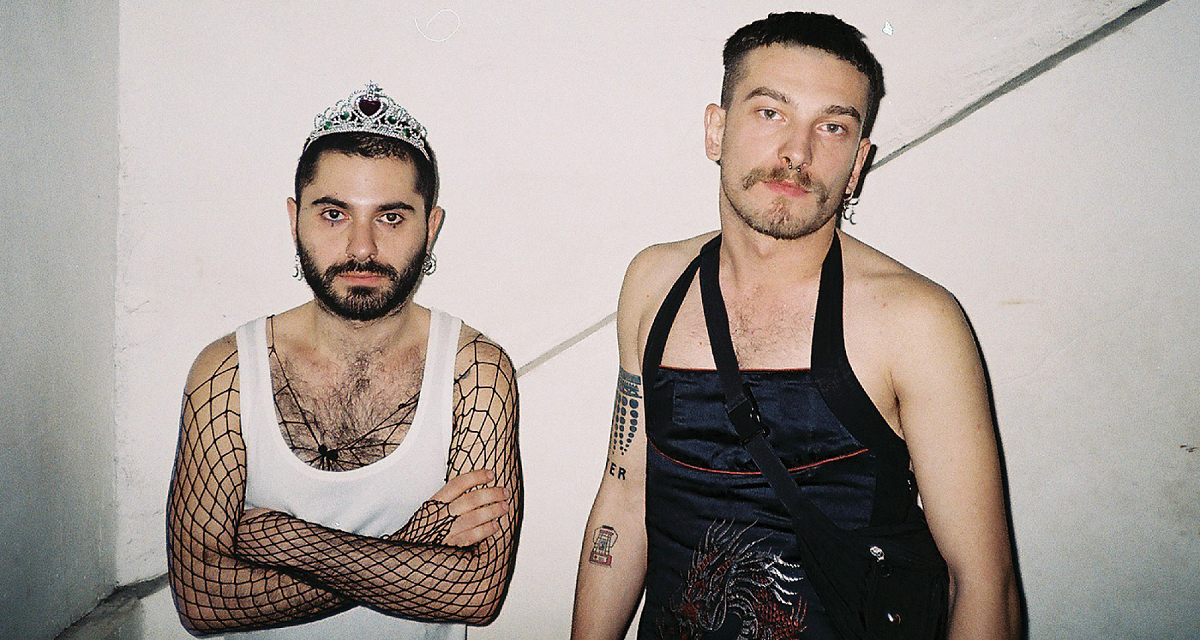
Words: Ruben Wissing; Photography: Hitori -Y
This article was first published in Attitude issue 305, February 2019
It’s the middle of summer. I worm my way into the lengthy queue for the most talked-about nightclub of the Caucasus: Bassiani.
Droves of hipsters and ravers are ahead of me, clad in wonderful black outfits, or whichever hedonistic style they happen to feel good in. The contrast with the grey masses out in the street couldn’t be much greater. The searches conducted at the door are pretty thorough — and it’s not so much about whether your face fits but rather whether you could be out to cause harm to other clubbers. They’d already checked out my Facebook profile when I bought my ticket, so that they could ensure they weren’t letting in a homophobe or football hooligan.
“Please follow me, Miss,” one of the bouncers says to a trans woman, as he gently guides her inside the venue. Hang on a minute; this is Tbilisi, the capital of Georgia…
Bassiani is a world unto itself, a safe haven within the extremely Christian nation of Georgia, which has a population of a mere 3.7 million.
“Georgians are macho, masculine and terribly homophobic,” says Paata Sabelashvili, 39, during a Skype chat. He is a prominent activist for both the Georgian LGBT+ community and for recreational drug users, and is closely involved in the management of Bassiani.
Although LGBT+ citizens don’t get rounded up on the street (as is the case in neighbouring Chechnya), gays are not strung up (as in nearby Iran), and gay bars are not blown up (as in the neighbouring nation of Armenia), LGBT+ people still have to be on their guard. According to Paata, those who identify as queer are beaten up regularly, and the police are not always willing to respond.
“Last March, two trans women were assaulted by the receptionists of a hospital that they had called into to ask for help,” Paata adds.
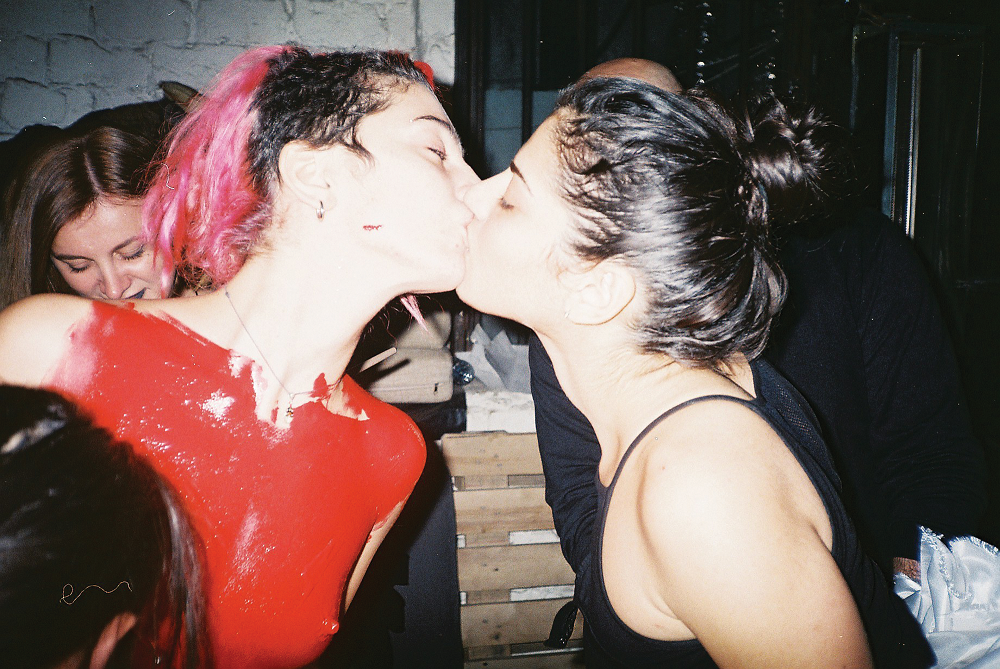
Although he hasn’t lived in Georgia for the past three years, Paata has been working in HIV control and prevention at the Eurasian Coalition on Male Health, in Estonia. Georgia is still within his sphere of operations, but he’s not keen to return any time soon. “The LGBT+ organisations do a good job, a new generation has come through.
The only thing that could possibly lure me back is Bassiani — there’s nothing like it anywhere else in the world.”
FADED SPLENDOUR
Bassiani is the place where all minorities gather. The club opened its doors in 2014, and is housed in the Dinamo Arena, the stadium of the national squad and the largest football club in Tbilisi. The contrast is difficult to miss: inside the stadium, there can be more than a thousand homophobic hooligans shouting out ultra-nationalistic chants, while directly beneath them, various men are French-kissing one another.
The exterior of the arena is impressive enough, but the interior — the faded splendour that was once a Soviet swimming complex dating back to 1929 — is perhaps even more so. It’s virtually pitch-black inside, it smells like a disused industrial area, and the ear-splitting techno feels as if it’s about to tear your insides out.
Anything goes inside: if you’re a man you can wear a dress if you feel like it, stand on the stage and vogue with hardly any clothes on, go in for a bit of cross-dressing, or dive into the darkroom. Bassiani has plenty of space for all manner of activities. It’s unique to Georgia, the Caucasus and perhaps all of Eastern Europe, and this is what draws the hip youth of Tbilisi out every Friday and/or Saturday night until well into the early hours, morning or afternoon, to dance to local and world-renowned international DJs — the club is often compared to Berghain in Berlin.
In just four years, Bassiani has become the most popular techno club in the country by some distance, and has established Tbilisi firmly on the map as a “rave destination”. Although the club is not exclusively set up for LGBT+ clientele, they do organise monthly queer parties, which are called Horoom, a sub-division of Bassiani. Those parties became so popular that a special Horoom area was opened, which is also open on regular nights (and free for the LGBT+ community).
According to Paata, the gay and hetero crowd tend to mix exceptionally well — unlike at other venues in Georgia. “The Horoom parties are so favoured by supporters that we sometimes have to turn people away, because there wouldn’t be any room otherwise for the LGBTs. On regular nights, there are predominantly heterosexuals in Horoom, and the gays are off dancing in the bigger venue.
“In that darkroom, which I requested to be created within the venue, there are plenty of hetero couples.”
Although people generally go to Bassiani to dance and get seriously fucked-up, the owners Zviad Gelbakhiani and Tato Getia have clearly built the club on two founding principles: the acceptance of LGBT+ people to ensure they can have a safe time-out from their daily struggles, and a respect for the clubbing culture associated with recreational drug use — hence the strict door policy. That isn’t too surprising, according to Paata.
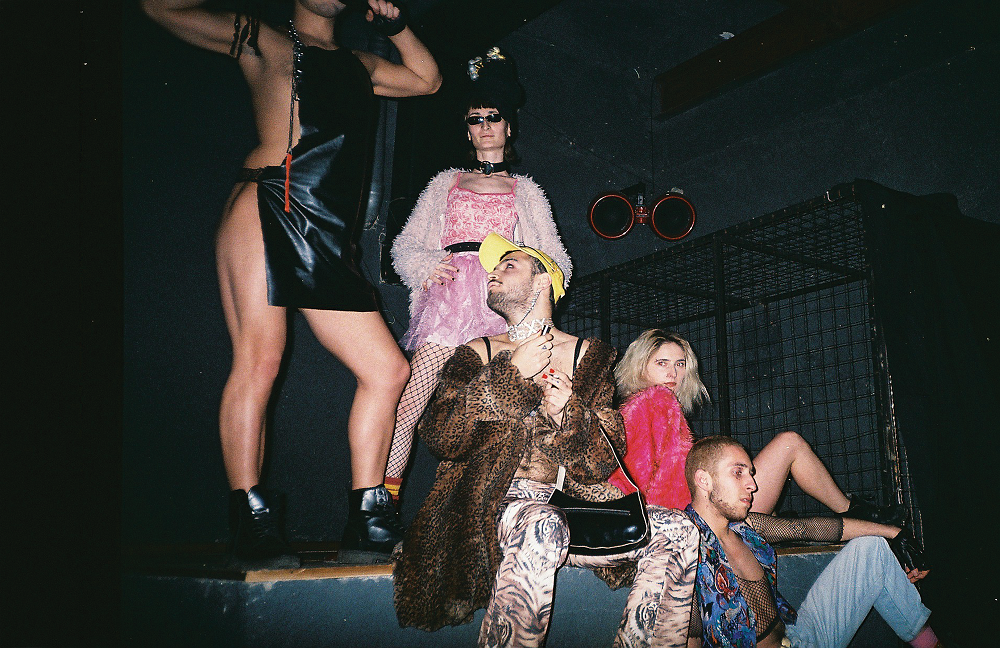
“Many LGBTs, recreational drug users, sex workers and other oppressed minorities experience problems with the police or hooligans, either while travelling to the club, or when they head home afterwards. Also, many of the staff at Bassiani are part of the community, or they just don’t want to rat out their friends to the police.
“Bassiani isn’t a club, it’s a social movement to which the music is merely a soundtrack,” an emotional Paata explains. Horoom for instance isn’t just a queer party, the Facebook group of the same name is also the location where money is collected for transgender [people] who have been kicked out of their family home, and where young people share stories about coming out.
“There was a boy recently who posted a message saying that he had told his mother that he fancies men. She had turned to him lovingly apparently, and said: ‘That’s OK, sweetie, so do I.’ So you see, those types of stories are heading in the right direction.”
LAWLESS STATE
Georgia became independent in 1991 when the Soviet Union disintegrated, but soon found itself in something of an abyss. The Nineties were one of the darkest eras for the population, with two civil wars over the now breakaway republics of South Ossetia and Abkhazia, violent gangs controlling the streets, and a bloody coup d’état. Having electricity and heating in the home was a luxury, and the queues for the bakeries were extensive.
On top of all that hardship, homosexuality was still a criminal offence until the year 2000, and taking a Kalashnikov whenever you went out was a normal occurrence. It’s hard to imagine anything like that now.
“We lived in a state of total lawlessness back then,” Paata says about the post-Soviet chaos of the 1990s. As in Berlin and Belgrade, all of the misery going on above ground paved the way for a massive punk and rock scene underground, which was political in nature.
“We were looking for freedom, individualism, and non-conformism. It was a fantastic time back then. Although there were still school books from the Soviet era that described homosexuality as a disease, and many of the rockers were quite homophobic, the parties were gayfriendly from the start, with everyone respecting everyone else. You could have a rock concert going on in one area, and a fashion show by a gay designer in the other space. The first ever cross-dressing party I attended was back in those days.”
Does he appreciate this inclusivity and acceptance even more today than before? “Oh, totally. The only thing that was good about the Nineties was being revived in Bassiani. I see so many old friends who I danced with back in then.”
The liberal underground scene of the Nineties disappeared when the economy stabilised and many were provided with the financial option to leave the country. Paata came out to his mother in 2002 after he returned to Tbilisi from his studies at the Central European University in Budapest, where he saw people fighting against homophobia for the first time.
“In those days, nobody dared to come out of the closet. Older men who I was seeing sexually told me I was mad for coming out. They advised me strongly to get married and have kids, just like they had done. Nobody had even heard the term ‘coming out’ back then, or if they did, they certainly didn’t view it as something that would be liberating,” says Paata.
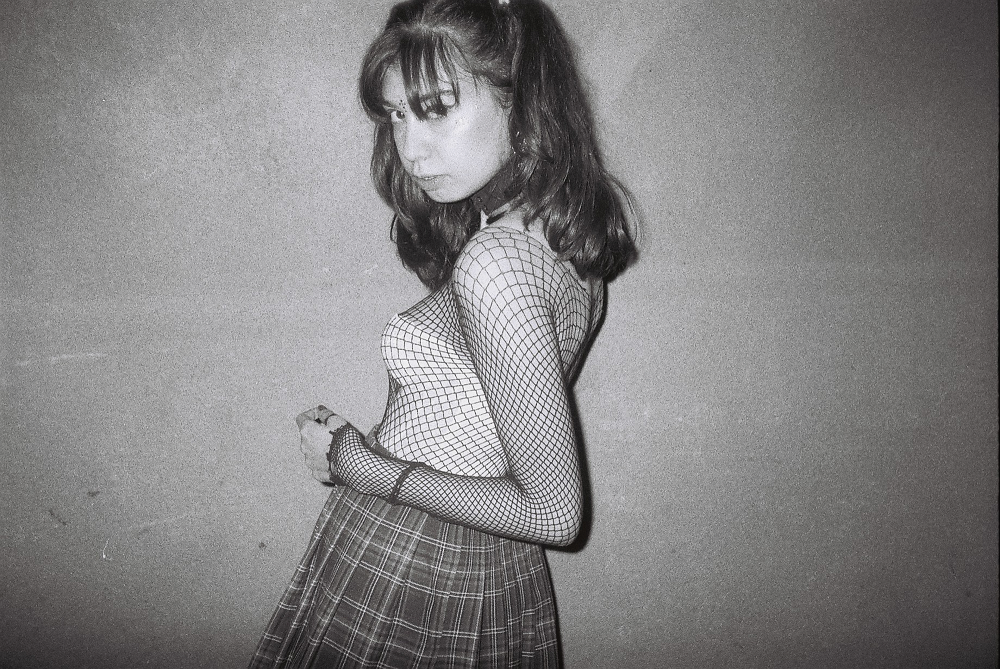
Due to this internalised homophobia, and the fact that the internet was still in its infancy, the LGBT+ community found it difficult to unite, and any contact was primarily sex-driven.
Paata himself often visited internet cafes — including the famous cruising one nicknamed Flamingo — to pick up men.
“When the well-known gay chat sites first emerged, I would always be the first subscriber from Georgia. I used to have to e-mail the companies to get my country on the list.
“Via the IP address of Flamingo, which we knew off by heart, we were able to see if anyone was sitting in the same cafe who we could chat with and maybe set up a date. The last numbers of the IP address were always marked on the computers. Once, I asked a boy I was chatting with what kind of coffee he liked. I promptly ordered that type — and placed it next to his computer. He got quite a fright!”
Paata tries to guide the conversation from the bedroom to the bar. In the early 2000s, he organised multiple gay parties at Success Bar, the first gay bar in Georgia. During a chat session, Nia Gvatua, 27, the owner of Success Bar, emphasised the relevance of her venue. “It’s more than just a gay bar, it’s also the place where LGBT+ people come to communicate with each other in public because that wasn’t really happening outside.
“All sorts of people come to Success: gays, lesbians, bisexuals, priests and politicians.”
The parties Paata hosted at the bar were held with financial help from The Netherlands. “It was hard at the time to set something up in a small post-Soviet state, far away from the EU, without a prior tradition of LGBT+ organisations and certain safety assurances.
“We would never have been able to realise this without the financial backing given to us by [Dutch LGBT+ organisation] COC Nederland and the images of [Dutch photographer] Erwin Olaf, which we were allowed to use free of charge as posters for our parties.”
STRICT ZERO TOLERANCE
While Paata battles for LGBT+ rights, other campaigners are fighting Georgia’s strict anti-drug laws. In the wake of the Rose Revolution in 2003, Georgia’s President Mikheil Saakashvili (who is married to Dutch woman Sandra Roelofs) introduced an uncompromising zero-tolerance drug policy.
“Drug users were its first victims,” says David Subeliani in a Skype chat. One of the leaders of the White Noise Movement, the largest campaign group battling for the rights of recreational drug users in Georgia, 41-year-old David says: “The jails were overflowing. It didn’t matter whether you’d had half a joint in your bag or 50 kilos of cocaine, you were [almost] always be given a sentence of between five and 20 years.”
Paata became a victim of the policy when the office of the LGBT+ organisation he was working for was raided in 2009. He says: “Because the police threatened to publish explicit photos of lesbian colleagues, I immediately signed whatever documents they put in front of me.”
He ended up spending several weeks in jail.
“Because the junkies had been driven from the streets, a new type of drug user emerged: the young, open-minded hipster who used drugs ‘recreationally’ when out clubbing,” says David, referring to Bassiani’s clientele.
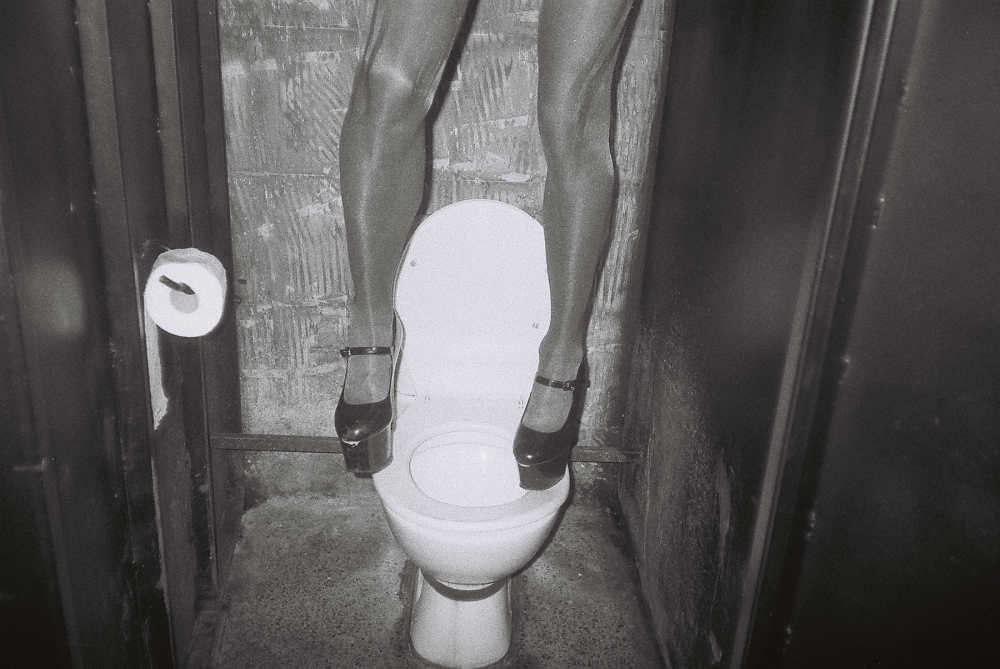
“They aren’t shunned by society because people can see that they are still able to make something of their life. Sooner or later, they will all come up against the same dense wall that is the law.
“Even fairly recently, the police systematically planted drugs on youths or on those they simply wanted out of the way.” The government has now introduced its #NoPlanting campaign, which aims to stop the authorities planting drugs on innocent people.
“It’s great that they admit it, but it’s all so absurd. This is the hashtag that we should be using as activists, and they should really be tackling it internally,” David adds.
With a slightly reluctant sense of enthusiasm, David is positive about what they’ve achieved to date: “We have now managed to decriminalise marijuana, but even so… Even if you’re carrying only 0.00009 grams of MDMA, the likelihood that rapists and murderers will be released from jail before you is very probable.”
MOST VULNERABLE
Georgia’s recreational drug users and the LGBT+ community have plenty in common — not only do they encounter one another in Bassiani, but they share the same enemies: the state, the Church and ultra-nationalist movements that view both minorities as a threat to “Georgian identity”. On 17 May 2013, a peaceful protest march for LGBT+ rights was forcefully crushed by the authorities.
“Priests led the way, the police just stood by and watched, and there were thousands of civilians right behind them who were ready to kill the first gay they encountered,” says David. “I thought things in Georgia were headed in the right direction but this made me realise just how fucked-up it still is. A transgender person was murdered, and a drug user was beaten up — anyone would think it was the norm here.”
Although Georgia passed an anti-discrimination law to protect LGBT+ people in the wake of the 2013 march, in practical terms this hasn’t brought change. The police often don’t intervene when gays are getting battered, or a trans woman is bullied out of her own neighbourhood.
Bar owner Nia says: “Transgender [people] are already the most vulnerable group in the country. They have a hard time integrating or getting a job, which means they often end up in prostitution.”
Paata adds: “This law was only passed to appease Brussels, so that we will be able to travel to the EU without a visa.”
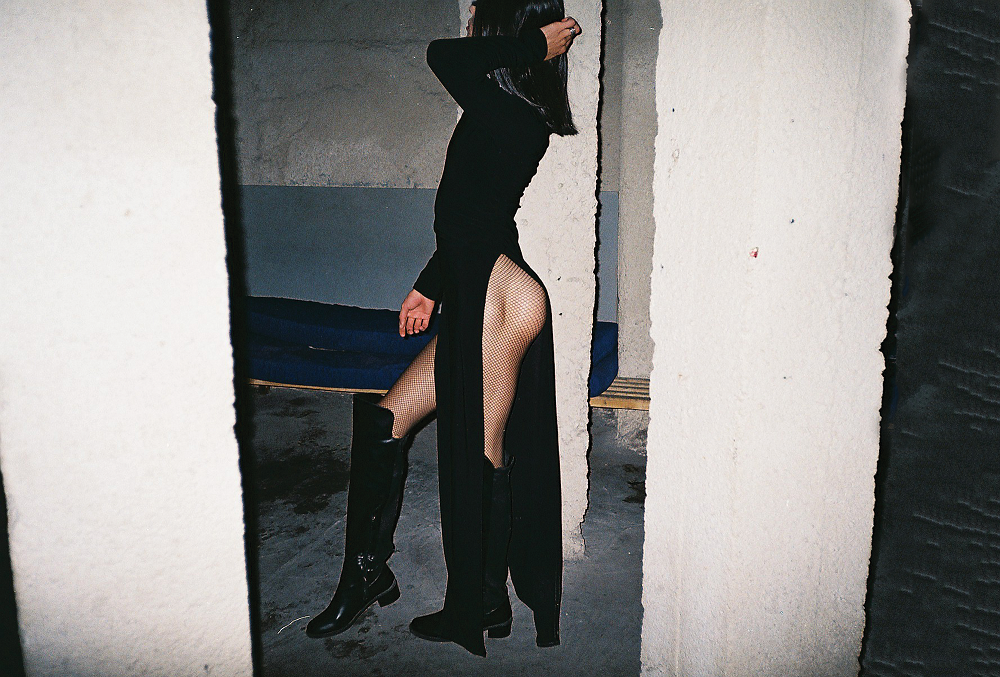
David highlights just how important it is that all activists unite. “We are steadily getting to understand that we need to make a stand together. When we started the White Noise Movement, we first went to the LGBT+ activists to express our solidarity; that is also something that we put into action.
“We assemble at each other’s meetings and protest events. If we drum up activists for our protests, the gays are often in the front line opposite the police. That goes for all the left-wing movements, by the way — for women, sex workers, the unions, migrants, mine workers, you name it. The oppression has the same origin. If we speak with one voice and can mobilise thousands of people, they won’t be able to ignore us any longer.”
ANYTHING IS POSSIBLE
The night life in Tbilisi is slowly getting used to the presence of LGBT+ customers. There are many gay-friendly cafes and clubs that have survived and new ones that have now sprung up (such as the Cafe Gallery and Fabrika). The doors of Success Bar are able to remain open without a door policy and just recently Khidi, a large-scale techno club that also organises gay parties, has opened — something that would be impossible in any of Georgia’s neighbouring states.
“The club scene in Tbilisi is booming. It’s much bigger than in Amsterdam. What better place is there to get people together? This is the right demographic,” David adds. Bassiani calls on visitors to mobilise themselves to go and demonstrate.
Paata continues, “The toilets are covered in stickers with upcoming marches, and the party-goers are provided with stamps at the entrance which read: ‘Parliament at seven o’clock’, so they know what they have to do as soon as they wake up.
“There was also a projection in the club featuring the amount of time the ravers have left to sleep before they should head to the evening’s anti-governmental protests.”
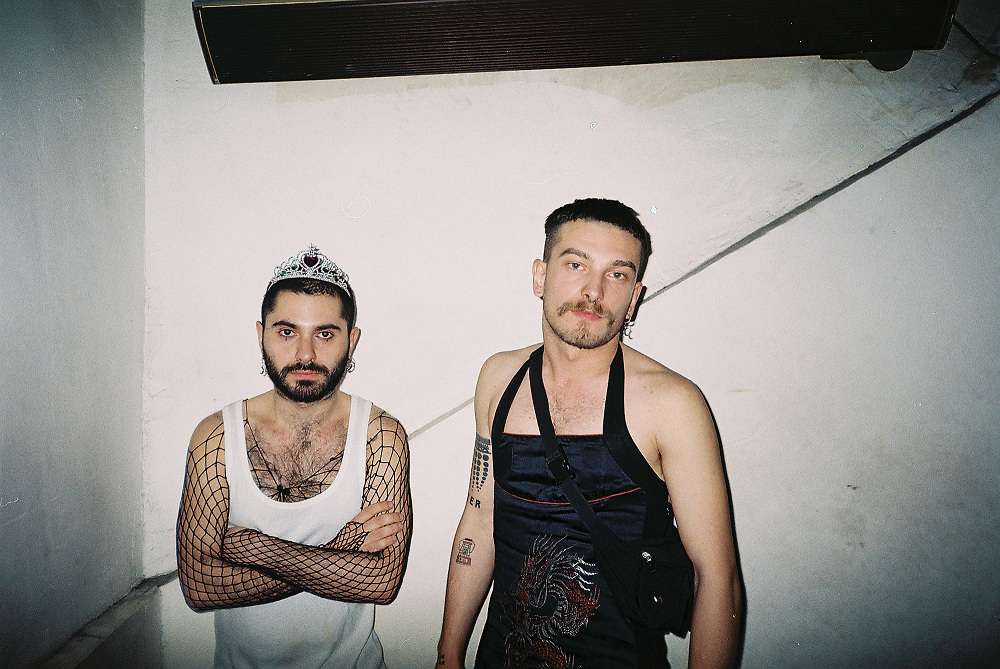
Bassiani is immensely popular and contributes to the visibility of the LGBT+ community.
It’s not a problem if you’ve come from a homophobic, strict Orthodox background — if you love raw techno, and want to make something of your weekend, you’ll end up there. Music is uniting groups that at first sight seem diametrically opposed, and that can only be a good thing.
Paata acknowledges: “After a Horoom party, guests usually munch away their hangovers at one of the local Turkish snack bars. “These days, it’s no longer unusual to see aggressive macho men downing vodka shots with transsexual women. That is such a good and powerful thing.
“It makes absolutely anything seem possible.”
